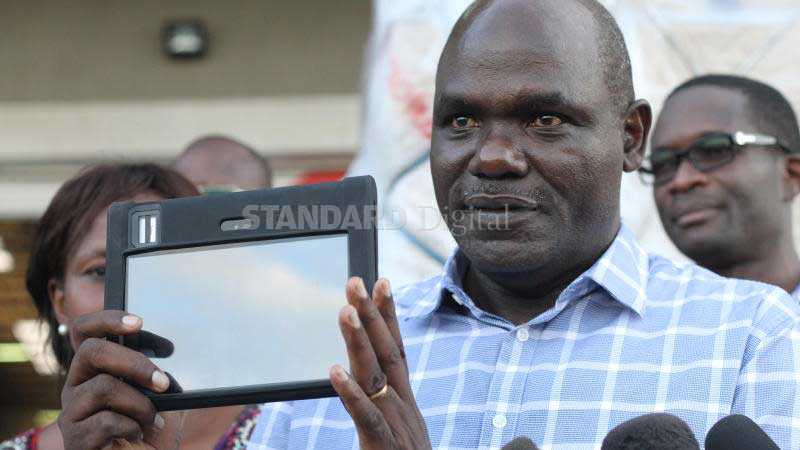×
The Standard e-Paper
Kenya’s Boldest Voice

The Independent Electoral and Boundaries Commission (IEBC) failed to account for Sh5.41 billion in its 2015/16 expenditure, the latest Auditor General report shows.
In his 2015/16 report, Auditor General Edward Ouko has queried why the electoral agency irregularly changed the specifications relating to supply, delivery, installation, training, testing and commissioning of 30,000 Electronic Voter Identification Devices (EVIDs) at Sh1.6 billion.